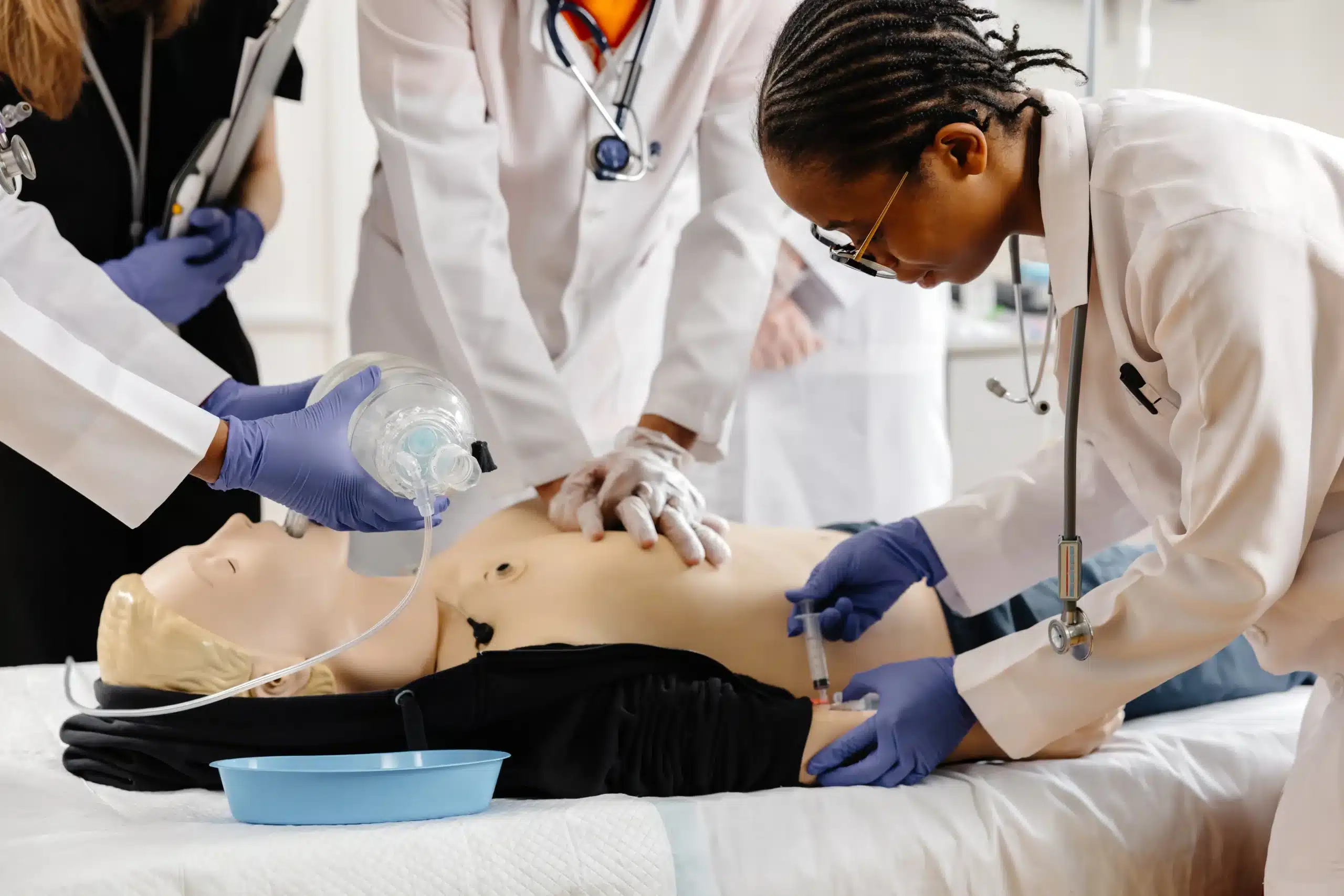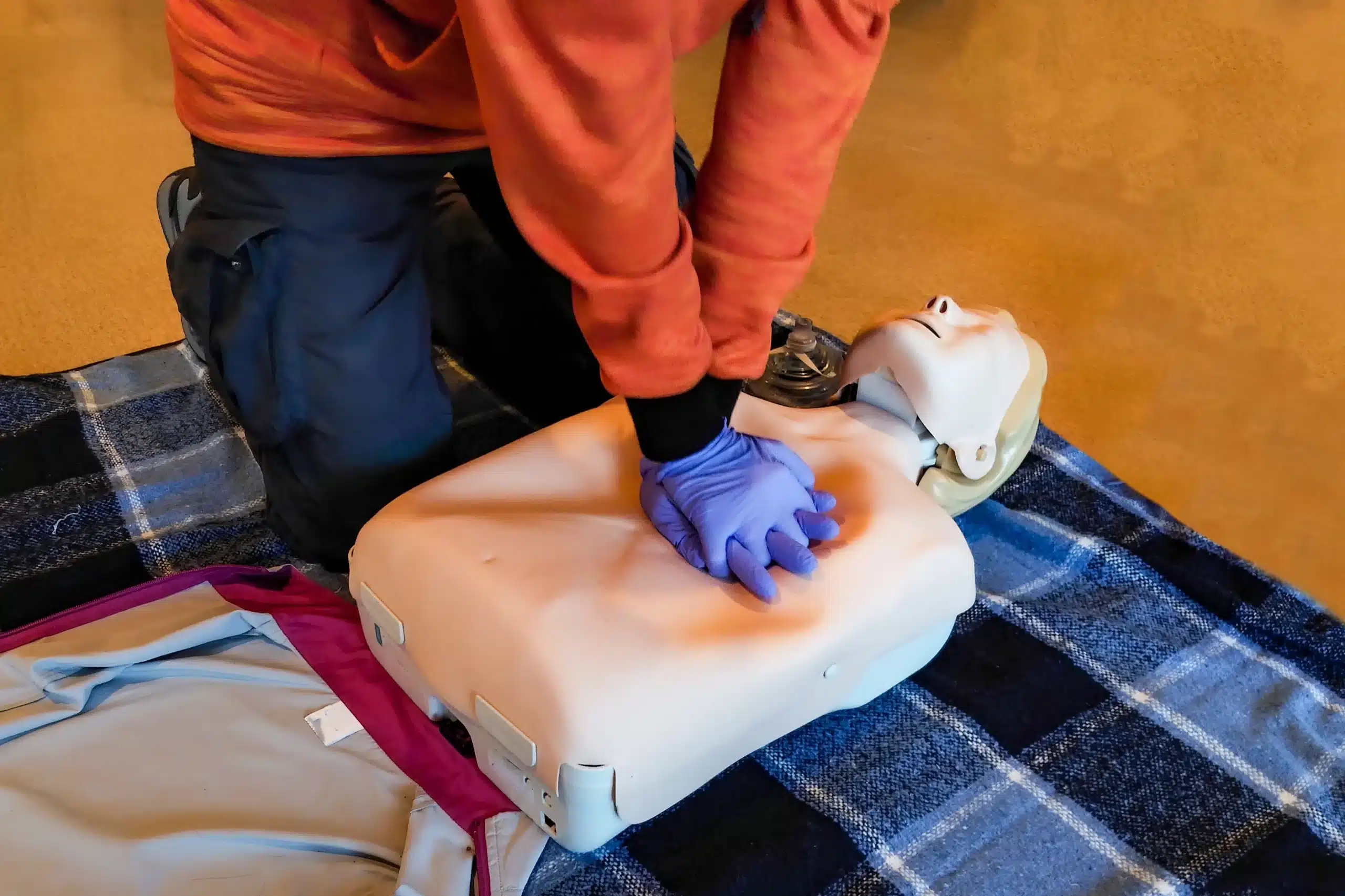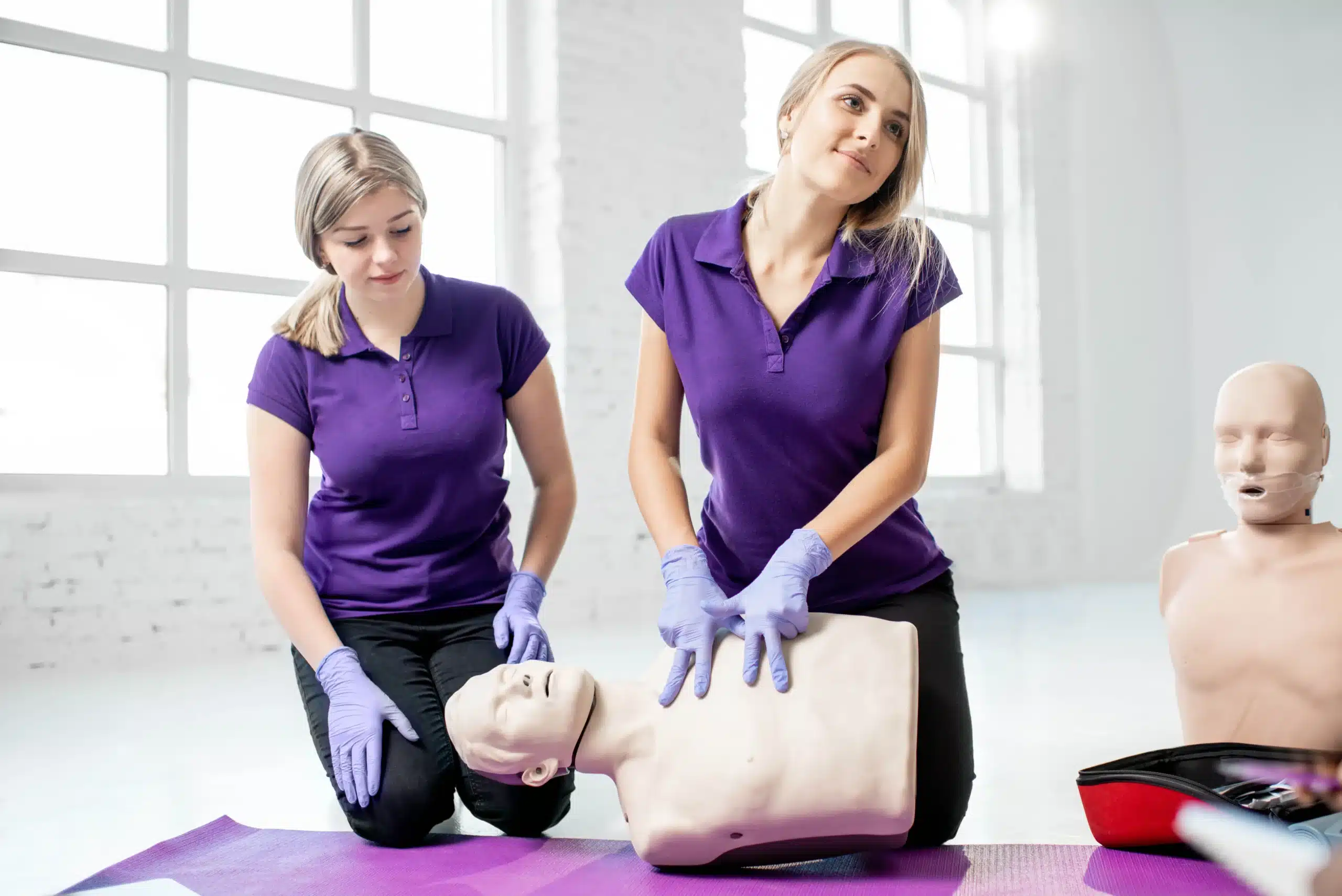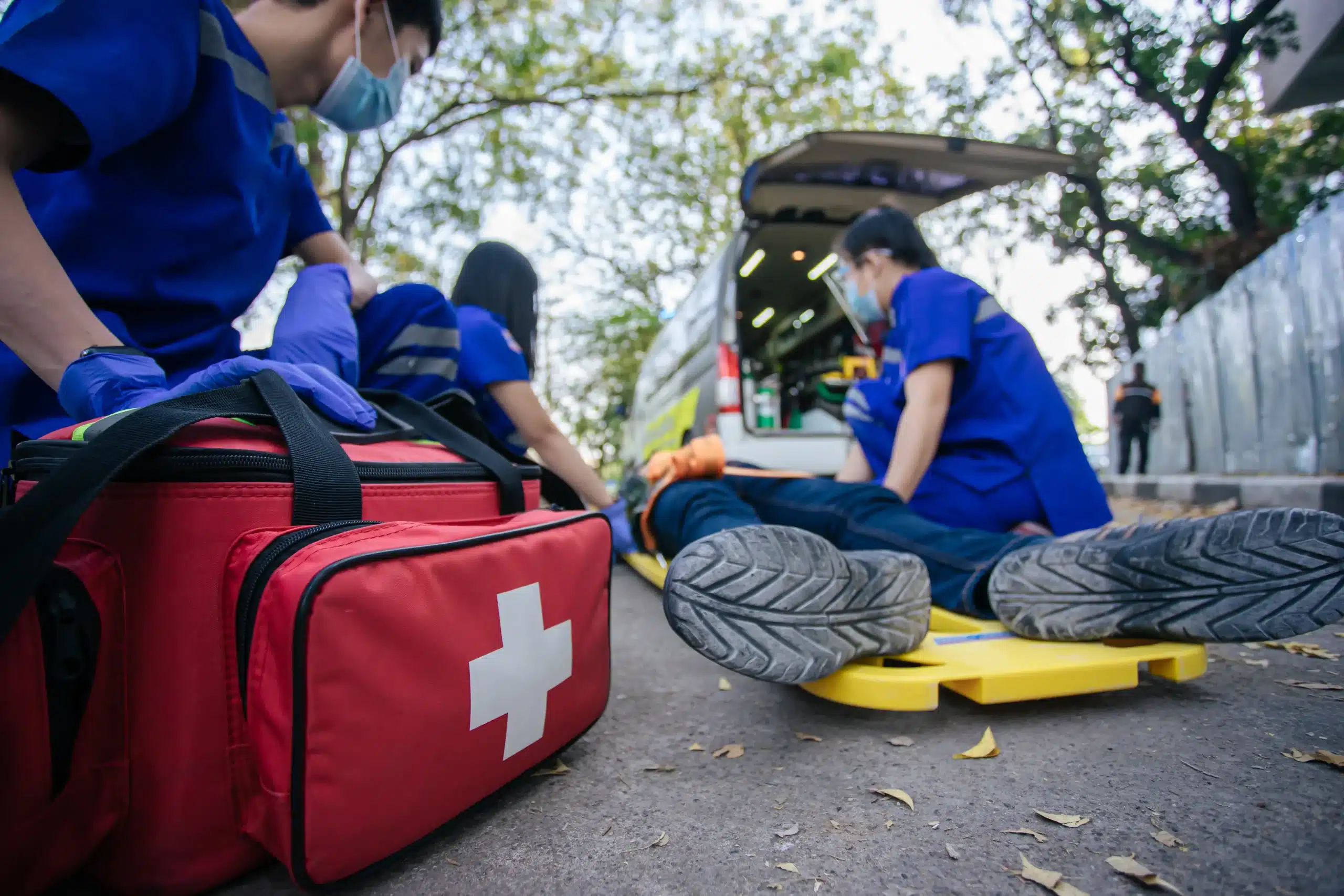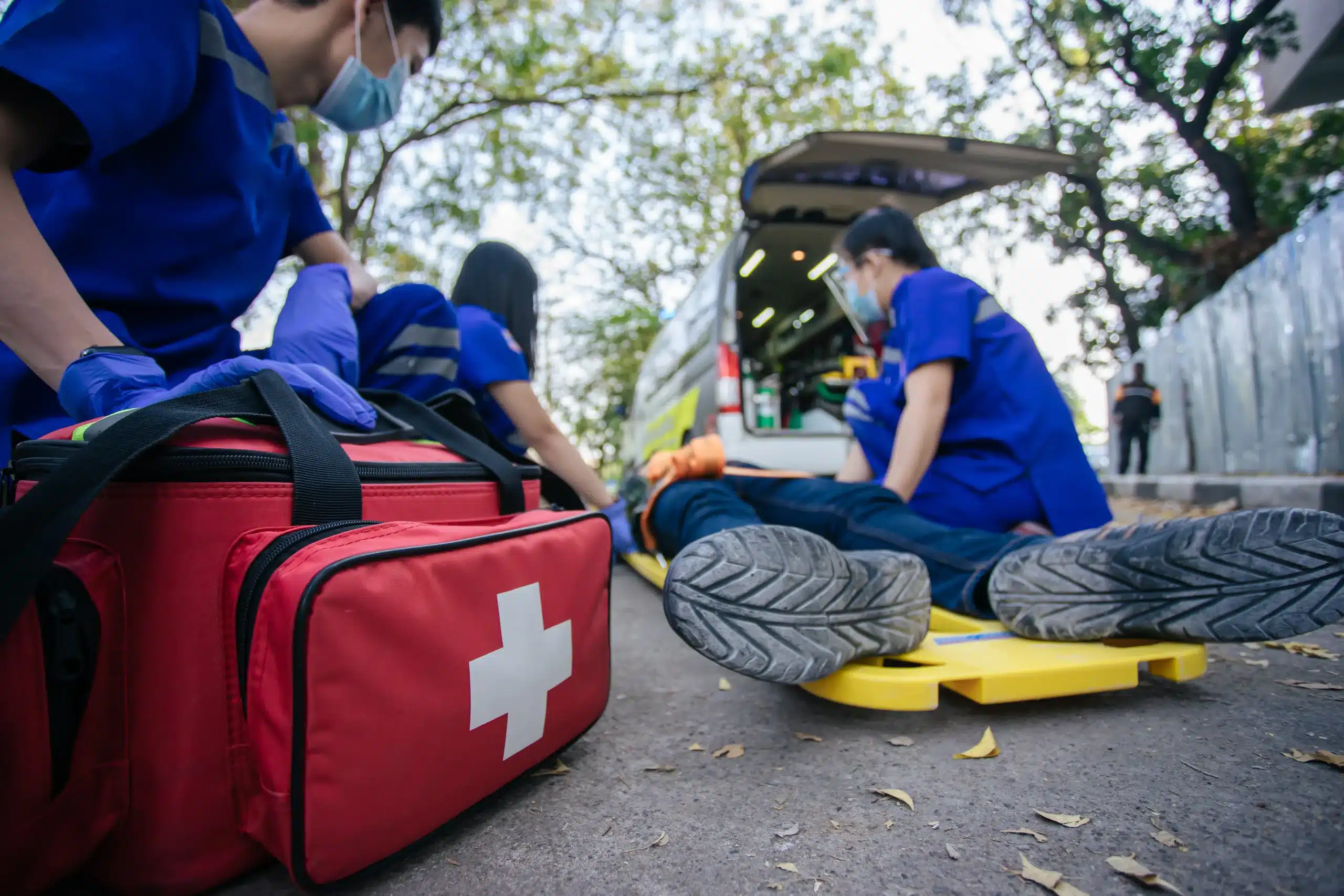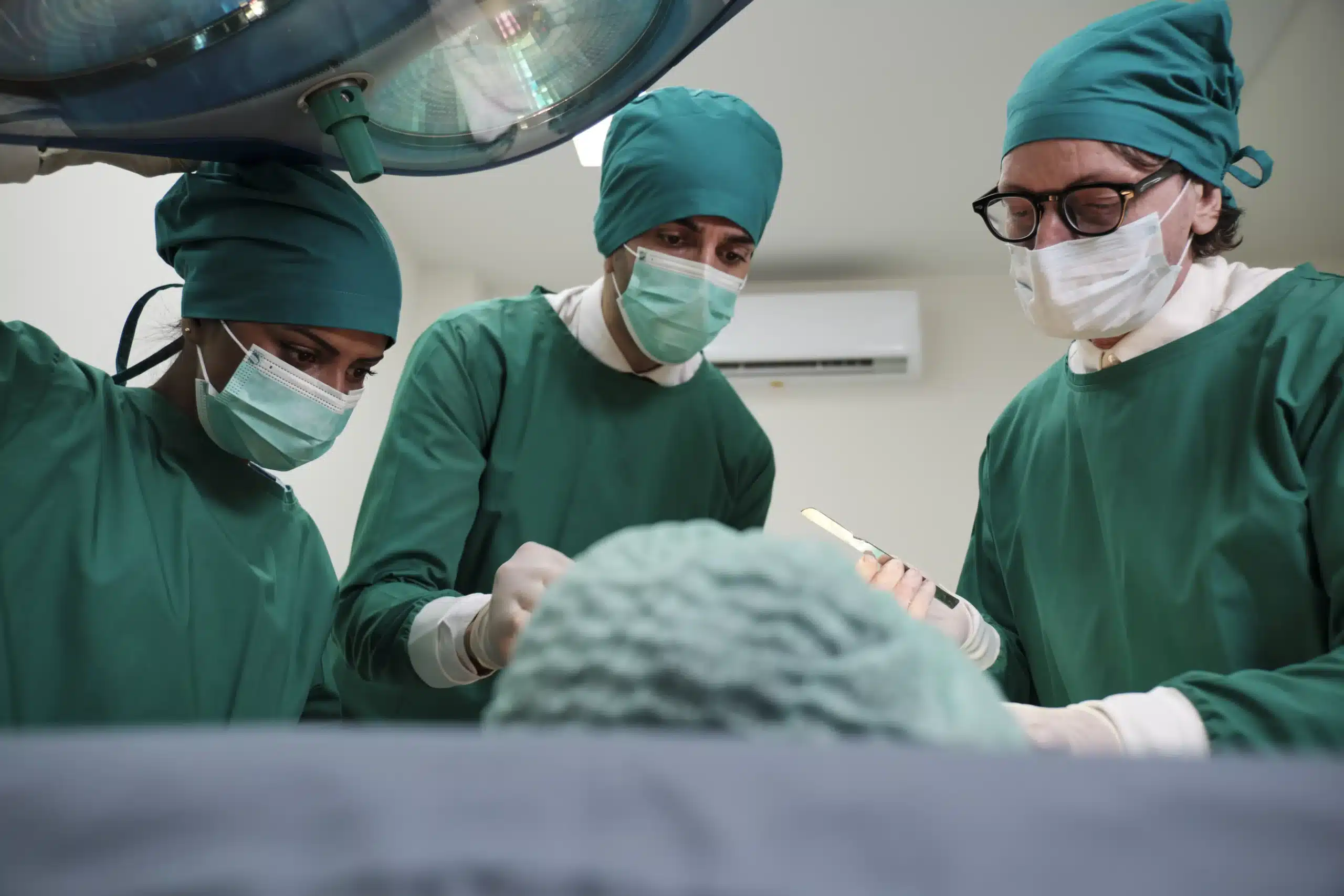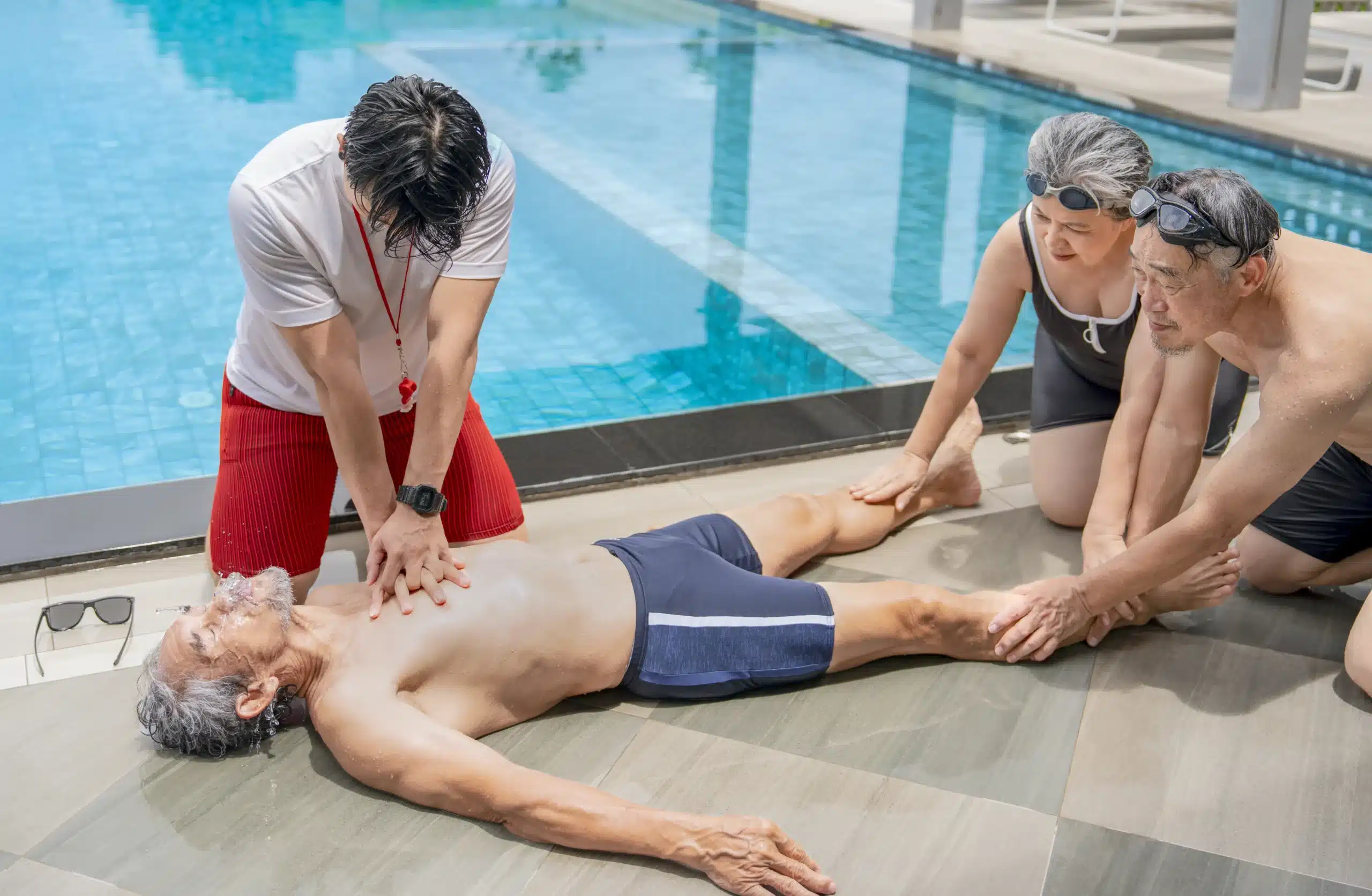Your BLS certification is about to expire, and you’re searching for “BLS renewal near me.” You’re in the right place. This guide walks you through the essential steps of BLS renewal, from finding AHA-accredited training centers to understanding the costs and choosing the best course format for your learning style. We’ll also cover how to prepare for your renewal course and where to find potential discounts. Let’s make this renewal process smooth and stress-free.
Key Takeaways
- Find the right BLS renewal course: Look for AHA-accredited training centers with positive reviews. Compare prices, course formats (online, in-person, or blended), and consider location and schedule. Check for low price guarantees and group discounts.
- Understand renewal requirements: Ensure your current BLS Provider card is valid, or take the full BLS course. Remember the two-year certification period and the 30-day grace period.
- Prepare effectively: Review core BLS concepts before class. Bring your current BLS Provider card (or eCard) and any required materials. Familiarize yourself with the course duration and expectations.
What is BLS Renewal?
BLS (Basic Life Support) renewal keeps healthcare providers and other certified professionals sharp and ready to use their life-saving skills. Think of it as a refresher course on the essentials: CPR, recognizing emergencies, and providing basic first aid. This certification is a must-have for anyone who might need to respond to a medical emergency, like doctors, nurses, EMTs, lifeguards, fitness instructors, or coaches.
Your BLS certification is typically good for two years. To stay certified and ensure you’re using the most current, evidence-based practices, you’ll need to renew it before it expires. There’s no grace period, so plan to complete your renewal a few weeks before your current card expires. Renewal usually involves a course (online or in-person) and an exam to test your skills. After you’ve completed everything, you’ll get a new certification card, valid for another two years. Staying current with your BLS training means you’re always prepared to provide critical care in any situation.
How to Find the Best Local BLS Renewal Providers
Finding the right BLS renewal course involves a bit of research to ensure you’re getting high-quality, accredited training. Here’s a breakdown of how to find the best providers in your area:
Check Provider Reputation
Start by checking online reviews and testimonials to see what other students are saying. Look for comments about the quality of instruction, the helpfulness of the staff, and the overall course experience. Also, double check that the course meets all AHA requirements for BLS renewal, including a skills check component. Some providers, like CPR Certified Trainer, may offer virtual skills checks for added convenience.
Find AHA-Accredited Centers
It’s essential to choose a training center officially accredited by the American Heart Association. This guarantees the course content and instructors meet the AHA’s high standards, and ensures you’ll receive a valid and recognized BLS certification.
Explore Local BLS Renewal Options
Several organizations typically offer BLS renewal courses. Here are a few places to explore:
Santa Clara CPR Classes
Santa Clara CPR Classes offers a range of AHA-certified courses, including BLS, ACLS, PALS, and First Aid. With flexible scheduling and a low price guarantee, they’re a convenient and affordable option for those in the Santa Clara, Milpitas, and San Jose areas.
American Red Cross
The American Red Cross is a well-known provider of BLS renewal courses. They offer both online and in-person classes, providing flexibility for different learning styles.
Local Hospitals and Medical Centers
Many hospitals and medical centers offer BLS renewal courses. Check with hospitals in your area to see what’s available, as some programs may be geared towards their staff.
Community Colleges
Community colleges often provide budget-friendly BLS renewal courses, making them accessible to a wider range of people.
Fire Departments
Your local fire department may also offer CPR and BLS training to the community. Reach out to them to find out about courses and potential discounts.
How Much Does BLS Renewal Cost?
Knowing the typical costs associated with BLS renewal helps you budget and find the best value. Let’s break down the typical price ranges, additional fees you might encounter, and how to snag the best deals.
Typical Price Ranges
BLS renewal costs vary based on location, the training center, and the course format. Generally, you can expect to pay somewhere between $50 and $80 for BLS renewal. You can often find competitive options—some training centers offer combined courses like CPR/AED/First Aid and BLS Healthcare Provider certifications at lower prices. It’s always smart to compare prices from different providers in your area to ensure you’re getting a fair price. For example, you can explore options for BLS Certification in Santa Clara for a range of competitive prices.
Additional Fees
While the base price covers the core BLS renewal course, be aware of potential additional fees. These can include things like online processing fees, study materials, or certification card fees. Some providers might also charge extra for same-day certification or expedited shipping. For instance, CPR/AED training may have an associated AHA fee. Always ask about any potential extra costs upfront to avoid surprises.
Low Price Guarantees
Look for training centers that offer a low price guarantee. This ensures you’re getting the best possible deal on your BLS renewal. Santa Clara CPR Classes offers a low price guarantee, demonstrating their commitment to providing affordable, high-quality training. A low price guarantee can give you peace of mind knowing you’re investing wisely.
Choose Your BLS Renewal Format
Renewing your BLS certification involves a few choices. Understanding the different learning formats available helps you pick the best one for your schedule and learning style. Let’s break down the most common options: online courses, in-person training, and blended learning.
Online Courses
Online BLS renewal courses offer incredible flexibility for busy professionals. The online portion of the BLS renewal course provides a comprehensive review of essential BLS skills and knowledge, allowing you to work through the material at your own pace. This format is perfect if you prefer self-directed learning and need to fit your renewal around existing commitments. It’s worth noting that online courses typically require a hands-on skills check with an AHA-certified instructor. Sav-A-Heart offers a good example of this blended approach.
In-Person Training
If you thrive in a hands-on learning environment, in-person BLS renewal training might be a better fit. In-person courses offer direct interaction with instructors and the opportunity to practice skills in real-time with other healthcare providers. This format allows for immediate feedback and clarification on any questions you may have. Santa Clara CPR Classes offers in-person BLS renewal courses aligned with American Heart Association guidelines, serving Santa Clara, San Jose, and Milpitas. For those seeking in-person training, Safety Training Seminars offers BLS renewal courses in Sunnyvale.
Blended Learning
Blended learning combines the best of both worlds. This hybrid approach typically involves completing the cognitive portion of the course online, followed by an in-person skills session. Blended learning offers a more tailored learning experience, allowing you to review the material at your own speed before demonstrating your skills to an instructor. This format is particularly beneficial for those who want the flexibility of online learning combined with the hands-on practice of traditional in-person training. The RQI program is a great example of a blended learning approach to BLS renewal. The American Red Cross also offers this convenient blended learning format.
BLS Renewal Prerequisites and Requirements
Before signing up for your BLS renewal course, double-check that you meet the requirements. Understanding these will save you time and ensure a smooth recertification process.
Current Certification Status
The most important prerequisite? A current BLS Provider card. You must hold a valid American Heart Association (AHA) or American Red Cross (ARC) BLS Provider certification card or eCard to be eligible for a renewal course. If your card has expired, you’ll need to take the full BLS Provider course instead. Check your card’s expiration date—if it’s already lapsed, register for a BLS class and get back on track.
Renewal Time Frame
Your AHA BLS certification is valid for two years. You can renew up to 30 days after the expiration date, giving you a little leeway if life gets in the way. This grace period helps you maintain your certification without starting from scratch. Keep an eye on your expiration date and plan your renewal accordingly.
Skills Assessments and Course Content
BLS renewal courses are designed to refresh your skills and knowledge. Expect the course to take about three hours. You’ll practice essential life-saving techniques and be tested on your proficiency. Don’t worry, though—it’s all about making sure you’re ready to respond confidently in an emergency. You’ll receive your updated certification on the same day you successfully complete the course. Contact us if you have any questions about the renewal process.
Get Discounts and Group Rates for BLS Renewal
Getting your BLS recertified doesn’t have to break the bank. Knowing where to look for discounts and group rates can help you save money while staying up-to-date on your lifesaving skills.
Group Enrollment Benefits
If you’re coordinating training for a group, such as your workplace or a group of friends, look into group discounts. Many CPR training providers offer reduced rates for group enrollments. This can be a great way to make training more affordable and convenient for everyone. Since many Santa Clara providers offer BLS certification courses seven days a week, it’s easier to find a time that works for your entire group. This flexibility ensures that everyone can participate without disrupting their individual schedules.
Seasonal Promotions
Keep an eye out for seasonal promotions and discounts. Some providers offer lower prices during certain times of the year or for specific holidays. Check providers’ websites and social media pages for announcements about upcoming deals. You can often find competitive options—some training centers offer CPR/AED/First Aid and BLS Healthcare Provider certifications at various price points. Checking around can help you find the best value for your training needs.
Special Offers
Many training centers offer special deals throughout the year. These might include discounts for students, military personnel, or first responders. Some providers also bundle courses, like CPR/AED and First Aid, at a reduced price. Before registering, check if a provider offers virtual skills checks and if the course meets all the AHA requirements. Also, inquire about what’s included in the course fee. Ask if the provider covers essential materials like manuals and other supplies, which can save you the added expense of purchasing them separately.
Prepare for Your BLS Renewal Course
Getting ready for your BLS renewal course doesn’t have to be stressful. A little prep work can make all the difference. Here’s what you should know:
Refresh Your Knowledge
Before your BLS renewal course, take some time to review the core concepts. Brushing up on CPR techniques, AED operation, and airway management will help you feel confident and prepared for the skills practice and testing portions of the course. A quick review of the American Heart Association’s BLS course options can be a great starting point. Remember, these skills are essential for healthcare providers and directly impact patient outcomes. For local providers in the Santa Clara area, check out Santa Clara CPR Classes for more information.
What to Bring
The most important thing to bring to your BLS renewal course is your current BLS Provider card or eCard. This proves you’re already certified and eligible for renewal. If your card has expired, you’ll need to register for the full BLS Provider course instead. Contact your chosen provider to confirm any specific requirements. For example, Santa Clara CPR Classes may require a government-issued ID.
Course Duration and Expectations
BLS renewal courses are typically shorter than the initial certification course, often taking around three hours to complete. This includes time for skills practice and testing. Many providers offer convenient schedules, making it easier to fit the training into your busy schedule. Santa Clara CPR Classes, for instance, offers various class times and days. Check with your local providers for their specific schedules and course offerings.
Related Articles
- BLS Renewal in Milpitas: Your Complete Guide – Santa Clara CPR Classes
- BLS Certification in San Jose: Your Complete Guide – Santa Clara CPR Classes
- BLS Classes in Santa Clara: The Complete Guide – Santa Clara CPR Classes
- CPR Renewal in Milpitas: Find AHA-Certified Courses – Santa Clara CPR Classes
- HeartCode BLS Santa Clara: Your Flexible CPR Training Guide – Santa Clara CPR Classes
Frequently Asked Questions
How long is my BLS certification valid? Your BLS certification is valid for two years. Remember to renew it before the expiration date to maintain your certification status. There’s no grace period, so plan accordingly.
What if my BLS certification has already expired? If your BLS card has expired, you’ll need to take the full BLS Provider course again, not just the renewal course. Check with your preferred training provider for course availability and registration information.
What’s the difference between online and in-person BLS renewal courses? Online courses offer flexibility, allowing you to learn at your own pace, while in-person courses provide hands-on training and direct interaction with instructors. Both formats typically require a skills assessment with a certified instructor. Blended learning combines online learning with an in-person skills session.
How much does BLS renewal typically cost? BLS renewal costs typically range from $50 to $80, depending on the provider, location, and course format. Look for providers offering low price guarantees or group discounts for better value. Be sure to ask about any additional fees, such as materials or processing fees.
How can I prepare for my BLS renewal course? Review the core BLS concepts, such as CPR, AED use, and airway management, before your course. Make sure you bring your current BLS Provider card (or eCard) to the renewal course. Contact your training provider to confirm any other specific requirements they may have.
